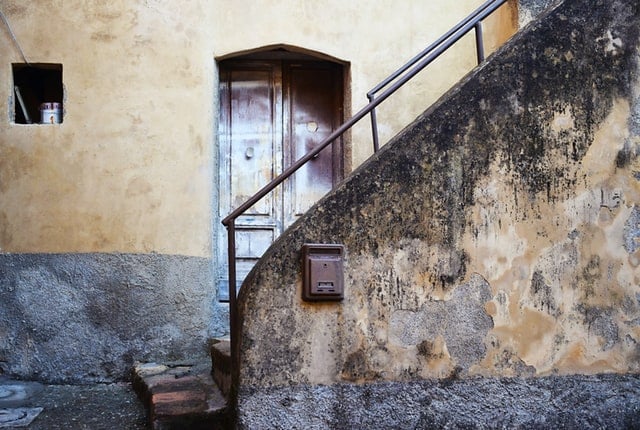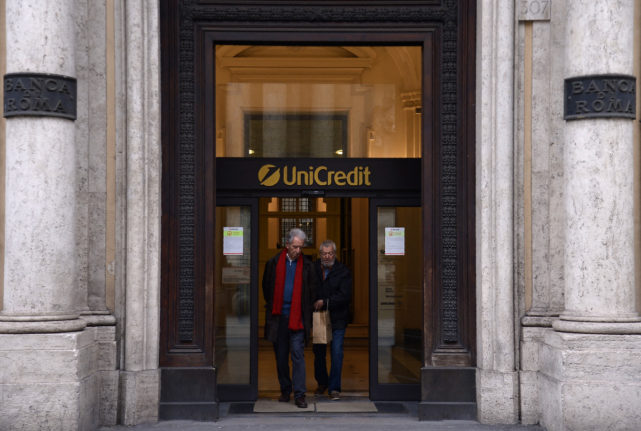In the two years since it was introduced, Italy’s popular ‘superbonus 110’ has given homeowners the chance to claim a tax deduction of up to 110 percent of the cost of renovation work. And it’s still going.
Some had expected Italy’s new government to scrap the superbonus altogether by the end of 2022, after funds were claimed in excess and problems with the credit transfer system caused major delays.
Italy’s current prime minister, Giorgia Meloni, has also been outspoken in her criticism of the scheme, which was introduced under a previous government led by Giuseppe Conte.
But while the superbonus will remain in place for 2023, it is set to undergo some major changes.
Under plans recently outlined by the government, from January the maximum available rebate will drop from 110 to 90 percent, and the scheme will exclude many of those who were previously eligible to claim.
The government has outlined the proposed amendments under Italy’s incoming fourth financial aid decree (known as the ‘decreto aiuti quater’).

While these amendments are yet to receive final approval from parliament, they look all but certain to become law given the comfortable majority the new government enjoys in both houses.
Based on reports in Italian media, here are the details available so far of the changes to the superbonus expected from January 1st, 2023.
What can homeowners claim in 2023?
Those renovating independent or single-family homes will be eligible for a rebate of up to a maximum of 110 percent on the cost of renovation works carried out until March 31st 2023 – as long as they can prove that at least 30 percent of the planned work had been completed by September 30th 2022. It isn’t yet clear exactly what type of evidence they will be asked to produce.
Those who started construction work in 2022 but did not reach the 30-percent completion status by September 30th, or can’t prove that they have done so, can still claim a rebate of up to 90 percent.
For renovation work on properties within apartment buildings or condominiums, a rebate of up to 110 percent will only be available to claimants who can certify the start date of the renovation works (Comunicazione di Inizio Lavori, CILA) by December 31st 2022.
The government extended the deadline, which was previously November 25th, after weeks of pressure from opposition forces and consumer groups.
For anyone who doesn’t present the CILA certificate by the December 31st deadline, the maximum available discount will drop to 90 percent of expenses in 2023.
Note that, in all cases, the actual percentage homeowners can claim via the superbonus still depends on individual financial circumstances, with the maximum rebates only available to those paying the highest rates of tax.
READ ALSO:
- Should you hire a renovation agency for your Italian home?
- Italy’s building superbonus: What’s the problem with credit transfers?
- Nine things we’ve learned about claiming Italy’s building ‘superbonus’
Meanwhile, those who begin work on their property from January 1st, 2023 can also claim up to 90 percent – but there will be new, tighter criteria to meet which will mean many people will no longer be eligible to claim the superbonus at all.
From 2023, the bonus can only be claimed by the owner of the property undergoing renovation, and that property must be the owner’s first home (or abitazione principale).
Most importantly, the bonus will only be available to claimants with a household income not exceeding 15,000 euros in 2022.
While eligibility for most government incentives is based on a household’s ISEE number, the income of superbonus claimants will now be calculated through a new ‘family quotient’ (quoziente familiare) system.
The maximum amount that can be claimed will further drop in 2024 to 70 percent, and in 2025 to 65 percent, before the incentive is set to be withdrawn altogether.
The government is meanwhile still discussing further potential amendments to the decree which are aimed at fixing the stalled credit transfer system, according to reports. This issue has caused major delays to renovation works during 2022, as trade associations say some 50,000 construction companies are unable to access the bonus on behalf of clients.
Further information will become available once the decree covering these changes is converted into law.
Please note that The Local cannot advise on individual cases. For more information on claiming Italy’s building bonuses, homeowners are advised to consult a qualified Italian building surveyor or independent financial advisor.
See more in our Italian property section.




 Please whitelist us to continue reading.
Please whitelist us to continue reading.
Does the rule about abitazione principle still apply if your property is part of a condominio where the other owners’ properties are indeed their primary residences but your isn’t?